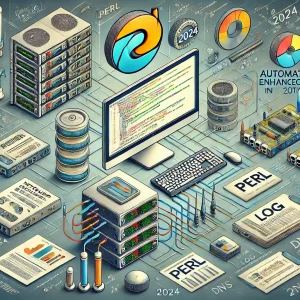In recent years, Kotlin has become a preferred programming language for Android app development. Google’s endorsement of Kotlin as a first-class language for Android development has significantly boosted its popularity. As we look ahead to Kotlin Programming for Android App Development 2024, Kotlin continues to evolve, offering numerous advantages for developers and businesses alike. In this blog, we will delve into why Kotlin is ideal for Android app development, its key features, best practices, and future trends.
Why Kotlin Programming for Android App Development 2024 is Ideal
1. Interoperability with Java Kotlin is fully interoperable with Java, allowing developers to use existing Java libraries and frameworks seamlessly. This interoperability means that developers can gradually migrate their codebases from Java to Kotlin, reducing the risk and effort involved in the transition. Kotlin Programming for Android App Development 2024 leverages this feature to ensure a smooth transition and integration with existing projects.
2. Concise and Expressive Syntax Kotlin’s syntax is more concise and expressive compared to Java. This results in less boilerplate code, which improves code readability and maintainability. Developers can achieve more functionality with fewer lines of code, leading to faster development cycles. This efficiency is a significant advantage in Kotlin Programming for Android App Development 2024.
3. Enhanced Safety Features Kotlin addresses several common pitfalls in Java, such as null pointer exceptions. With its null safety feature, Kotlin reduces the risk of runtime crashes and improves the overall stability of Android applications. This feature alone can save developers significant debugging time, making Kotlin Programming for Android App Development 2024 a more reliable choice.
4. Strong Tooling Support Kotlin boasts strong tooling support in Android Studio, including intelligent code completion, refactoring, and debugging tools. This support streamlines the development process and enhances productivity, which is essential for Kotlin Programming for Android App Development 2024.
5. Active Community and Support Kotlin has a vibrant and growing community. Developers can access a wealth of resources, including tutorials, documentation, and forums. JetBrains, the creator of Kotlin, continuously updates the language and provides excellent support, ensuring it remains relevant and reliable for Kotlin Programming for Android App Development 2024.
Key Features of Kotlin Programming for Android App Development 2024
1. Coroutines for Asynchronous Programming Kotlin’s coroutines simplify asynchronous programming by providing a cleaner and more efficient way to manage background tasks. This leads to smoother and more responsive applications, which is a significant benefit for Kotlin Programming for Android App Development 2024.
2. Extension Functions Extension functions allow developers to add functionality to existing classes without modifying their source code. This feature enhances code organization and readability, making it easier to extend and maintain codebases in Kotlin Programming for Android App Development 2024.
3. Data Classes Data classes in Kotlin automatically generate boilerplate code, such as equals(), hashCode(), and toString() methods. This feature reduces redundancy and simplifies the creation of classes that primarily hold data, making it ideal for Kotlin Programming for Android App Development 2024.
4. Smart Casts Kotlin’s smart cast feature eliminates the need for explicit casting. The compiler automatically handles type checks, making the code safer and more concise. This improves the overall development experience in Kotlin Programming for Android App Development 2024.
5. Default and Named Arguments Kotlin supports default and named arguments, making function calls more readable and reducing the need for overloaded methods. This feature enhances the flexibility and clarity of code in Kotlin Programming for Android App Development 2024.
Best Practices for Kotlin Programming for Android App Development 2024
1. Embrace Kotlin’s Idioms Leverage Kotlin’s features and idioms to write clean and idiomatic code. Avoid writing Kotlin code as if it were Java; instead, use Kotlin-specific constructs to enhance code quality. This is crucial for effective Kotlin Programming for Android App Development 2024.
2. Utilize Coroutines Use coroutines for managing asynchronous tasks. This will help in writing more efficient and manageable code for tasks like network requests and database operations, which are common in Kotlin Programming for Android App Development 2024.
3. Adopt MVVM Architecture Model-View-ViewModel (MVVM) architecture works well with Kotlin and Android development. It promotes a clear separation of concerns, making the code more modular and testable. This architectural pattern is highly recommended for Kotlin Programming for Android App Development 2024.
4. Write Unit Tests Ensure your code is robust by writing unit tests. Kotlin’s concise syntax and strong support for testing frameworks make it easier to write and maintain tests, which is essential for Kotlin Programming for Android App Development 2024.
5. Follow Coding Conventions Adhere to Kotlin’s official coding conventions to maintain consistency and readability across your codebase. This practice helps teams collaborate more effectively and is a best practice for Kotlin Programming for Android App Development 2024.
Future Trends in Kotlin Programming for Android App Development 2024
1. Increased Adoption in Multiplatform Projects Kotlin Multiplatform enables code sharing between Android, iOS, and web applications. As this feature matures, we can expect more projects to adopt Kotlin for cross-platform development, making Kotlin Programming for Android App Development 2024 even more versatile.
2. Enhanced Performance Ongoing improvements in Kotlin’s compiler and runtime performance will continue to make Kotlin a competitive choice for high-performance Android applications, reinforcing the benefits of Kotlin Programming for Android App Development 2024.
3. Growing Ecosystem The Kotlin ecosystem is expanding with new libraries and tools. Developers will have access to more resources that simplify common tasks and improve productivity, which is advantageous for Kotlin Programming for Android App Development 2024.
4. Integration with Modern Development Practices Kotlin is well-suited for modern development practices like continuous integration and continuous deployment (CI/CD). Its compatibility with these practices will likely drive its adoption further, making Kotlin Programming for Android App Development 2024 more efficient.
5. Support for Emerging Technologies Kotlin is expected to integrate more deeply with emerging technologies such as artificial intelligence and machine learning, opening new possibilities for innovative Android applications. This trend will shape the future of Kotlin Programming for Android App Development 2024.
Conclusion
Kotlin has firmly established itself as a powerful and versatile language for Android app development. Its concise syntax, safety features, and strong tooling support make it an excellent choice for developers. By embracing Kotlin’s unique features and following best practices, developers can create high-quality, efficient, and maintainable Android applications. As we move into 2024, Kotlin’s role in the Android development ecosystem will continue to grow, driven by its ability to adapt to new technologies and development trends.
By leveraging the strengths of Kotlin Programming for Android App Development 2024, developers can secure a competitive edge in the fast-paced world of Android app development, delivering superior applications that meet the demands of modern users.
4o





